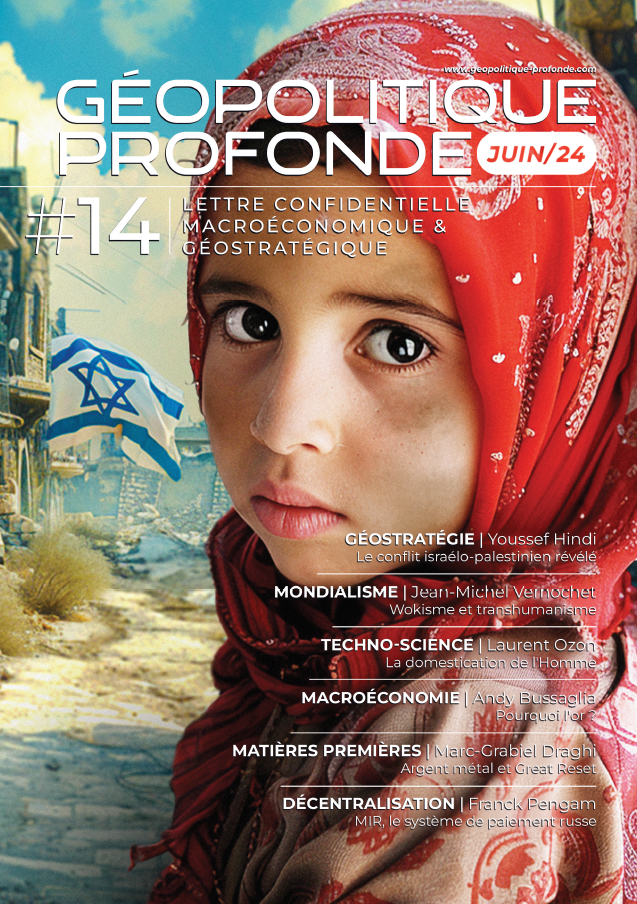
From south Texas near Mexico and from his online magazine Armas, Joshua Treviño offers profound Reflections on the revolution in England (gracias por el Señor Glenn Reynolds):
… the American grasp of European affairs is generally poor, a quality amplified by orders of magnitude when discussing the European grasp on American affairs, which is simply abysmal — but the former, the putatively free press of Great Britain, illuminated a truly distressing state of affairs in a nation nearing a full century of decline
… We [Americans] care about `britain because we see it as a font, and so it is — although it is really England that is the font. We can understand American history as an extended re-litigation of the English Civil War of the mid-seventeenth century, and there is no comparable template in Scottish, and still less in Welsh or Irish, history. America is rooted in England, we feel Aristotelian philia for it — that civic friendship, united in a noble and common purpose, that is the indispensable prerequisite of nationhood — and so England becomes surpassingly important for us. We do not understand ourselves without understanding it. We also do not understand the universality underlying American propositionalism without grasping England and its achievements.
… the tragedy of Britain of our time is to regard [This sceptred isle] as a positive evil, with the proclamation of Civis Britannicus Sum the assertion of a madman, a slogan of the demented.
This is the truth, and the sorrow of England now is that its regime — its British regime, let us call it that, because Britain and England are not synonyms — manifestly believes that Duer Miller’s English seed was poisoned. Partly this is a consequence of the British adoption of American thoughts and narratives (they feel Aristotelian philia for us too, after all) even unto their own ruin. The effort to transplant American civic narrative on race and oppression onto English history is morally and intellectually deranging: from the American perspective, England possessed lesser virtues and lesser vices alike versus its American descendants. Partly too it is a consequence of the proximate cause of the civic violence that swept the United Kingdom across the past two weeks: its regime’s determination that the people of England be subjected and subsumed by the importation of millions of foreigners with whom no philia is possible.
There is a regime narrative undergirding this iron fixation. You see it in the outlets for elite-approved materials at their expositions of history and its interpretations. The regime functionaries administering the British Museum, for example — arguably the single greatest museum of any kind in the world, with only Madrid’s extraordinary El Prado standing in real rivalry — make known their interpretive preferences in the capacious gift shop. There we find shelves upon shelves of books on offer detailing the evils that England has inflicted upon the world.
… The British Museum apparatus of commerce also, it so happens, has two sections purveying for purchase materials helpful in ushering the purchaser into the occult. As for the single most-important influence on all British history, which is to say Christianity, it has nothing in particular. This too is a regime choice.
… That is in fact happening — it is notable that a mosque is the only religious structure seen on the train from London to Oxford — but it is consequence rather than cause. Islam did not eradicate Christian England: that was the work of the English themselves, who at some point in the twentieth century decided to adopt wholesale American-style propositionalism as the basis of the nation — even unto their own ruin — and thereby cut themselves off from all they had been and meant. Surrendering the past is surrendering the future for which past is prerequisite.
… The new religion clambers upon the ruined edifice of the old and apes its forms
All this is tutelage, of course. The images of Fotis the Ve / Vir and the like pervade the public square in London for instructional purposes. They teach the English their new narrative, their new understanding of self, and their new permitted ambit of thought and belief. In Trafalagar Square, after telling my son about Nelson, I noted that the crossing lights throughout the busy intersections were not the usual green-and-red walking men. Instead they were sex symbols: literally so, two male symbols intertwined on some crossing lights, two female symbols interlocked on others, and (less common) a male symbol and a female one paired. The regime narrative is that this is intrinsically British, and therefore belongs in a quintessentially British space
… the argument is impossible: to paraphrase Rod Dreher, we have lost our reason and can no longer discern.
This too is a regime choice.
… at the rear of the chapel [at Oxford’s Exeter College], behind the golden crucifix, is a large LGBTQIA+ flag.
… England still exists. The English are still here. But they are well into the long defeat, having saved the world more than once and in more than one way, with nothing to save them but their own twilight struggle.
… [Today, London belongs not to the English but] mostly to the regime that propagandizes to [them] that [their] ancestors were evil and the structures that might have ordered [their lives] are mere restraints to be overcome; and it belongs increasingly to the Islamic population of the city that — unlike the English ruling classes — have the confidence and cohesion to assert and defend their own mores and folkways and traditions. That many of those civics, a term I use very loosely here, are inimical to the English is irrelevant, because they know very well that the regime will protect them in those cases, and they know they have superior Aristotelian philia among themselves. Londonistan as a phenomenon is quite real: I had not seen this many women in hijabs since a brief stint working in Jordan decades ago, and I had never seen this many women in a niqab, ever. We should understand clearly what this signifies. The deliberate process that turned London across the past generation into a city in which the native-born population are a minority — for the first time, it should be noted, in two thousand years — is not malign because of any specific characteristics of the non-native population.
… I saw a datum asserting that more British Muslims have joined ISIS and al-Nusra in the past fifteen years than have joined the British Army, and this is a massive problem if true, but ultimately one emergent from the flaws in host society, which fails to insist upon itself and its own values. That deliberate process of societal importation is malign, fundamentally, because the process is one in which the regime literally executes what Brecht proposed as mere satire in 1953’s Die Lösung:
After the uprising of the 17th June
The Secretary of the Writers Union
Had leaflets distributed in the Stalinallee
Stating that the people
Had forfeited the confidence of the government
And could win it back only
By redoubled efforts. Would it not be easier
In that case for the government
To dissolve the people
And elect another?
The people are dissolved. Understanding themselves close to dissolution, and instinctually grasping that they are thrust into existential crisis and denied all but pre-political means — they’ve voted time and again against this, and the party institutions of conservatism in Britain have shown themselves worthless at best, antipathetic at worst — they have asserted their Lockean right to appeal to heaven.
Their numbers are however not large, and they will lose to the regime. The prim horror of it was visible across U.K. media, whose figures positively delighted in reporting the persecution and jailing, not just of those who actually committed property destruction and assault, but of those who expressed disallowed opinions on social media. The Home Secretary appeared on the BBC and reassured viewers that Britain remains a free-speech society, while presiding over the expedited arrests, trials, and convictions of those who spoke wrongly. A father of small children got more than three years for a tweet. A middle-aged woman in Cheshire had her arrest announced by local authorities: she posted incorrect information on Facebook. The list is extensive and growing, each destruction of a wrongthink-posting nobody’s life amplified by the regime pour encourager les autres. The 1381 rebellion of English peasants under Wat Tyler ended with the victorious Richard II, having prevailed in part through a double-cross of the credulous rebels, sneering to them that “villeins ye are still, and villeins ye shall remain,” and this is still the message of the regime in 2024.
Like the Canadian state ruthlessly prevailing against the protesting truckers of 2022, and like the American state hunting down the its own dissidents — for example California Attorney General Kamala Harris persecuting the enemies of Planned Parenthood — the British state will relentlessly crush its opposition now. Its functionaries have already persuaded themselves that they are victims of a conspiracy — this too was widely discussed on U.K. regime media — and though Americans have lately mocked their pretensions to reach into the United States and extradite the purported instigators of the recent unrest, our own countrymen ought to consider that a left-leaning regime in Washington, D.C., has every reason to cooperate in that process. This is where the Anglosphere is now, each of its great nations gripped by two-tier and dual-track law and justice. Arsonists who burn Catholic churches are unpursued in Canada; rioters who terrorize communities in the name of racial equity are let go in America; and Muslims wielding weapons are unmolested by the British state. The commonalities are not coincidental.
Regimes have philia too.
One of the heartbreaking pleas of the dissident English that did make it through the regime-media barricade was for equal justice under law, for as much police protection for little girls in Southport as for mosques in Birmingham. But this isn’t what policing is for in the United Kingdom.
We saw an advertisement for Metropolitan Police recruiting in London … this is a mindset tell. This isn’t policing to protect and serve the community: it is quite explicitly a recruitment pitch for those who will best serve criminals. (In a rare bright spot for the native population, the criminal portrayed in the ad was visibly English.) Drug dealing simply does not threaten the regime and its practitioners therefore receive lenient treatment. That the preceding sentence also characterizes the Mexican state ought to place British governance in its proper context. If on the other hand that exhausted and scared teenager posted a meme about immigration, well he can just say goodbye to freedom. If the purpose of a system is what it does, then this is what British law enforcement does: it protects the regime. The English pleading for equal treatment and equal protection thereby betray the fatal flaw in their strategic insight, in that they believe they live in the country they deserve.
The country they actually have is nothing like it. It is a country where the regime loathes its people and labors quietly to end them. It is a country where the apparatus of law and order does not see its writ run throughout the land, which is why it cedes space — and therefore sovereignty — to both Muslim militias in England and Protestant militias in Northern Ireland, while pleading with both cohorts for aid in its mission. It is a country where the armed forces are no longer meaningfully capable of executing their core mission of defending the national territory, with the Royal Navy at a near-five hundred year nadir in real capability. … It is a country in which it is possible to walk down particular streets, as indeed we did, and see about as much English-language signage as one might see in Cairo, or Tunis, or Khartoum. …


